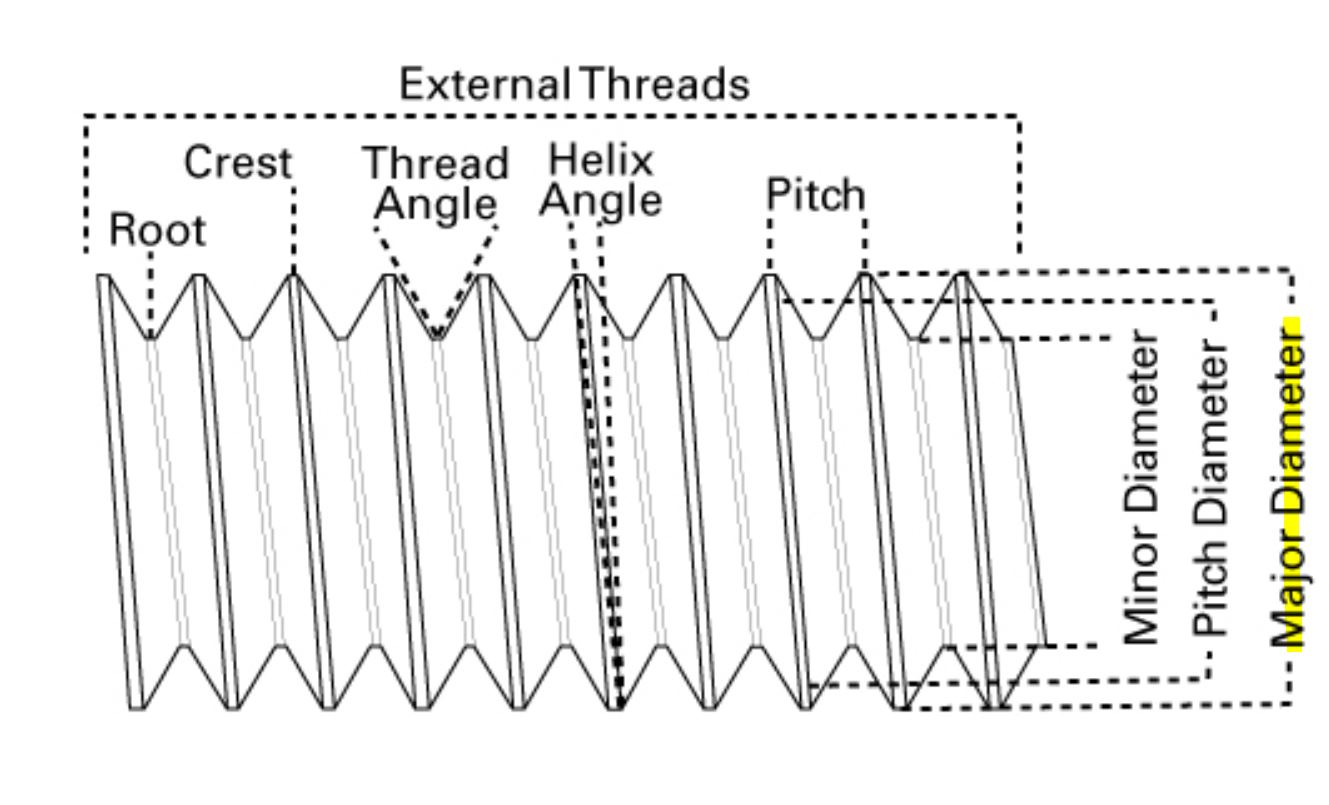A thread size has two measurements
- Major diameter
- Pitch
Pitch isn't that critical from my experience.
I do think major diameter is important though, choosing a suitable major diameter depends on:
- Barrel outside diameter before threading
- Caliber, ie. the diameter of the hole
You want to ensure there is sufficient thickness of material left on the barrel after threading. For example, cutting a thin barrel with a large caliber to a small major diameter is not the best option.
However you also want to make sure the thread grooves are sufficiently deep to achieve a strong connection with the suppressor. Theoretically, the deeper the thread grooves, the less chance of the suppressor "slipping" off. With a heavy barrel and a small caliber, you can afford to cut deeper threads while maintaining sufficient residual barrel thickness.
So it's all about finding the best balance point, and is probably best left to the suppressor fitter or gunsmith to decide.
Welcome guest, is this your first visit? Create Account now to join.
Welcome to the NZ Hunting and Shooting Forums.
Search Forums
User Tag List
Results 1 to 15 of 23
Thread: School me on muzzle threads
Threaded View
-
11-04-2021, 02:30 PM #5Member

- Join Date
- Dec 2018
- Location
- Christchurch
- Posts
- 613
Similar Threads
-
Missing threads
By wsm junkie in forum Questions, Comments, Suggestions, Testing.Replies: 7Last Post: 06-10-2019, 07:34 PM -
Is the A2 muzzle device a flash hider or muzzle brake?
By Apocalypticaman in forum Firearms, Optics and AccessoriesReplies: 45Last Post: 15-03-2017, 04:55 PM -
Silencer threads
By Breyt in forum Firearms, Optics and AccessoriesReplies: 15Last Post: 19-07-2015, 10:03 AM
Tags for this Thread
Welcome to NZ Hunting and Shooting Forums! We see you're new here, or arn't logged in. Create an account, and Login for full access including our FREE BUY and SELL section Register NOW!!




 15Likes
15Likes LinkBack URL
LinkBack URL About LinkBacks
About LinkBacks





 Reply With Quote
Reply With Quote


Bookmarks